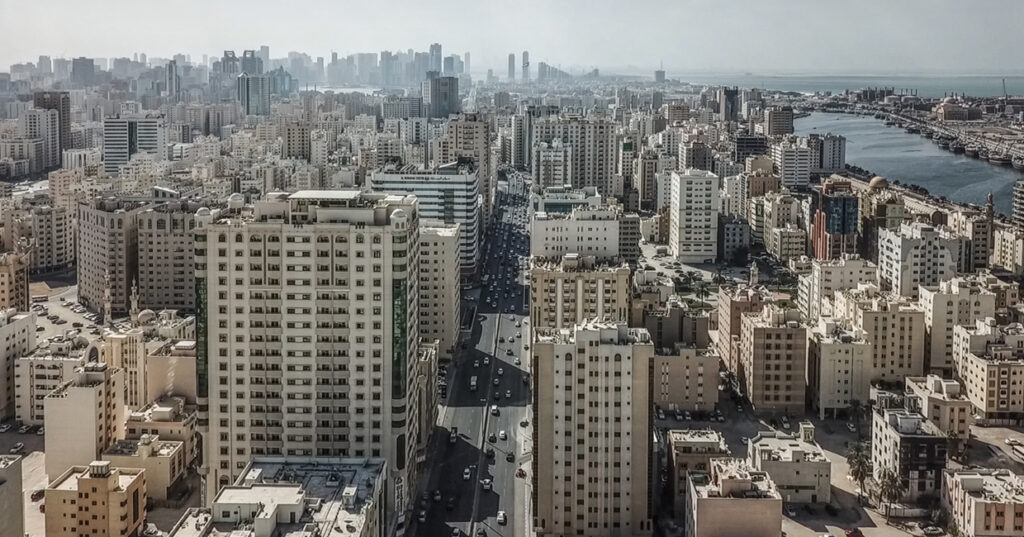Running for three months, the Triennial will open in November 2019 in the Emirate of Sharjah as the first major platform for dialogue on architecture and urbanism focusing on the Middle East, North Africa, East Africa and South Asia.
Emerging as a radical proposal within indigenous struggles and international law, Rights of Future Generations aims to fundamentally challenge the way we think about designing societies and environments with important implications for architecture, urban design, and planning. The exploration of this concept both within the context of the Arabic-speaking world and the global south is at the heart of the inaugural Sharjah Architecture Triennial.
“Rights of Future Generations is an invitation to radically rethink fundamental questions about architecture and its power to create and sustain alternative modes of existence,” says Adrian Lahoud. “The last decades have seen a massive expansion in rights, yet this expansion has failed to address long-standing challenges around environmental change and inequality.
“A focus on rights to health, education, and housing as individual rights has obscured collective rights such as rights of nature and environmental rights. At the same time, the conceptualisation of rights as basic standards reduces the diversity of human existence to mere subsistence within a universal minimum.
“These deeply-held preconceptions expressed in very basic ideas like shelter continue to inform how we think about architecture as something that protects us from the environment, or as some primordial need that exists irrespective of the existential differences between societies.
“The same is true for concepts like habitat that are deployed in the same way and by the same institutions. This colonial legacy has never ceased informing the kinds of desires and ambitions the discipline and the profession authorizes. Any emancipatory project will have to start with this condition.”
Rights of Future Generations questions how inheritance, legacy, and the state of the environment are passed from one generation to the next, how present decisions have long-term intergenerational consequences, and how other expressions of co-existence, including indigenous ones, might challenge dominant western perspectives.
Turning to alternative concepts of architecture and the environment, the Sharjah Architecture Triennial will focus on moments where experiments with architectural and institutional forms collaborate to generate new social realities.
Photograph: Drone image of aerial view from Al Sharq Street overlooking Khalid Port, Sharjah.



